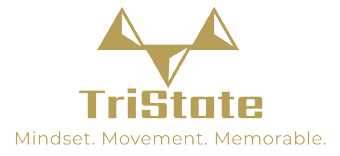How to Reflect & Reset After a Training Cycle
Short-cycle reviews aren’t just for numbers—they’re an opportunity to recalibrate mindset, movement, and motivation.
As coaches, we tend to zoom out when we reflect—looking at full seasons or year-end athlete reviews. But some of the most meaningful growth happens when we zoom in. At TriState, we take time to reflect and reset after each training cycle, whether that’s a 6-week build, a 12-week prep, or a peak into competition.
This isn’t just about reprogramming. It’s about checking the pulse, evaluating success from all angles, and deciding how we’re going to move forward—not backward.
1. When a Cycle Ends, Define the “Why” First
The end of a cycle depends on the athlete and the goal. For most of our team, cycles end with a culminating event—a meet, an in-house liftoff, or a test week. For high-level athletes, we structure mesocycles around things like Nationals or international events, but also use progress checkpoints along the way: technical benchmarks, strength lifts, or movement quality milestones.
Whatever the trigger, it always starts with this question:
“What was the purpose of this training block—and did we achieve it?”
If we didn’t, we don’t toss it out. We study it.
2. Start With the Human, Not the Numbers
The first thing we look at isn’t a spreadsheet—it’s the athlete’s mindset.
Do they feel proud of what they’ve done?
Do they feel like they’ve made progress?
Are they burned out, energized, frustrated?
For general athletes, success might be simple: “I hit that lift I’ve been chasing.”
But for more advanced lifters, it’s often emotional: “I’m worn down,” or “I don’t feel like myself in the gym right now.”
Sometimes the athlete hits every lift but still feels stuck. That’s a coaching signal to ask better questions, not push harder.
3. Give Them Space Before You Dig In
We don’t immediately flood athletes with feedback after a cycle ends. Instead, we allow space—especially after a peak meet.
Two times a year, we schedule formal Zoom check-ins where we go deep into life, goals, mindset, and alignment. The other cycles are more casual. Coaches check in via Slack, during sessions, or through short-form reflection prompts.
The goal isn’t to grade—it’s to ask:
“Is this still the right direction for you?”
4. Reset with Direction, Not a Blank Slate
I don’t like calling it a “reset.” Nothing is erased. Even tough blocks leave valuable information behind.
Instead, we move forward with insight:
For general athletes: we revisit movement quality, training frequency, and how recovery is trending.
For individuals: we dive into their logs and videos to ask “What worked?” and “Why did that work?”
If something clearly clicked, we’ll recycle elements of that block. If something missed, we redesign—but we always preserve the lessons.
Progress isn’t always linear, but it should always be informed.
5. Help Athletes Reconnect, Especially After a Peak
The truth?
Coming back after any meet—good or bad—is mentally tough.
Even if an athlete just had their best performance, returning to hard training can feel overwhelming. On the flip side, coming back after a plateau or miss can feel pointless.
That’s why I’m most hands-on right after a peak. The goal is simple:
Help the athlete mentally check back in—before we dive back in.
That might mean more presence in sessions, more back-and-forth on Slack, or simply being around to listen. The plan on paper doesn’t matter if the athlete isn’t ready to execute it mentally.
Final Thought for Coaches
You don’t need to overhaul your programming every cycle—but you do need to build space for reflection.
After every training block, ask:
What was the goal?
What worked?
What didn’t?
How does the athlete feel?
What’s our next move?
Let your athletes lead part of the conversation. Then take that data, energy, and emotion—and build the next cycle with clarity and purpose.

